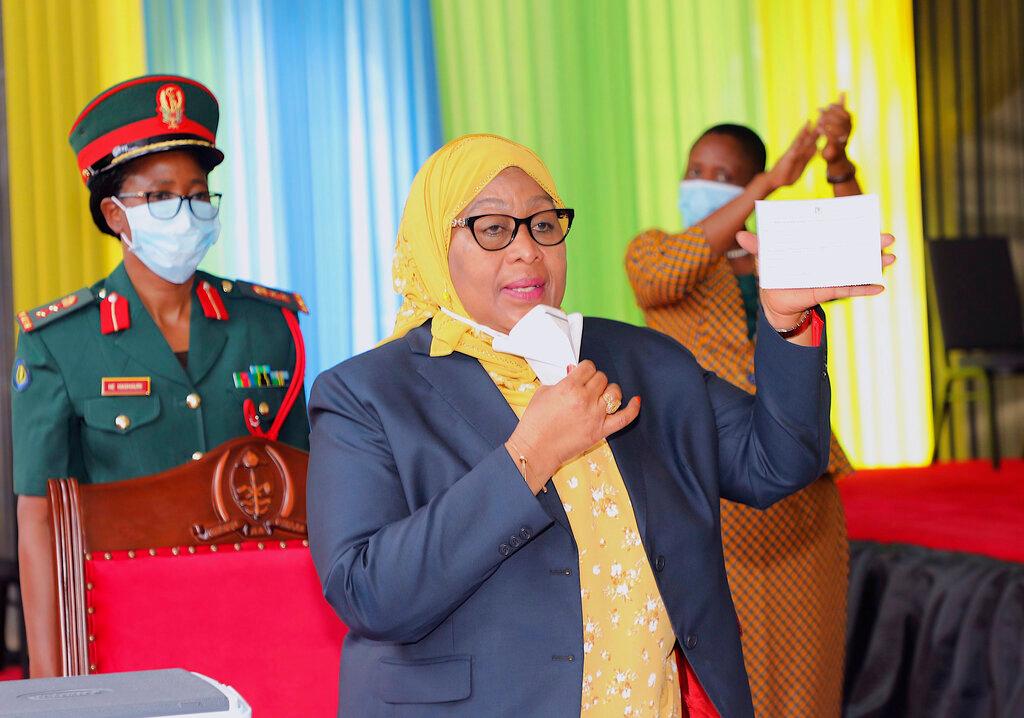Tanzanians still sceptical as country begins Covid-19 vaccinations
The government's challenge is to reverse the scepticism the Magufuli administration promoted about Covid-19 and vaccines.
Just In
In a major breakthrough for one of the world’s last countries to adopt Covid-19 vaccines, Tanzania’s president kicked off its vaccination campaign on Wednesday by publicly receiving a dose and urging others to do the same.
But she immediately met a lot of hesitation from the people of one of Africa’s most populous nations, according to CNN.
The East African country’s government under former president John Magufuli had long worried health officials by denying the seriousness of the pandemic and the usefulness of “white man’s” vaccines.
Magufuli, who insisted Covid-19 could be defeated with “the power of prayer”, died in March.
Opposition leaders insisted he had died of Covid-19 at least one week earlier than announced.
But the official story was he had died from heart failure, which he apparently had battled for more than a decade, according to the country’s new president, his deputy, Samia Suluhu Hassan.
She has since changed Tanzania’s course on vaccines and received the Johnson & Johnson jab Wednesday, while expressing confidence in the safety of vaccines and saying the country of more than 58 million people will obtain more.
The US on Saturday announced the delivery of more than one million doses via the Covax global initiative aimed at supplying poorer countries.
Now the Tanzanian government’s challenge is to reverse the scepticism the Magufuli administration promoted about Covid-19 and the vaccines.
“Why don’t we consider our traditional solutions? Why do we have to use foreign medicine? Is there something that is hidden here?” asked one resident of the commercial capital Dar es Salaam, Kelvin Mmari, who told the AP on Wednesday he’s not willing to be vaccinated.
The president stressed that the vaccine is voluntary, and many welcomed the arrival of doses.
“The action by the president to take a new direction in the battle against the coronavirus has brought relief to Tanzanians,” said Dar es Salaam resident Hawa Bihoga.
Tanzania went well over a year without updating its number of confirmed virus cases but has now resumed reporting the data to the Africa Centers for Disease Control and Prevention, which showed 858 cases in the country as of Wednesday, although critics warn that many more people are infected.
African countries, hit hard by so-called vaccine nationalism as rich nations prioritise doses for their own citizens, are embracing the need to have more control over vaccine production.
Hassan has even pledged to invest in vaccine manufacturing, according to the Africa CDC.
As many parts of the continent face a devastating surge of infections, just two African countries still have yet to start Covid-19 vaccinations: Burundi and Eritrea.
Burundi, whose late President Pierre Nkurunziza was criticised for downplaying the pandemic, still says vaccines aren’t needed yet.
And Eritrea has long been criticised by human rights groups as one of the world’s most closed-off, repressive countries, with no clear picture emerging of how the worldwide pandemic is affecting it.
Subscribe to our newsletter
To be updated with all the latest news and analyses daily.
